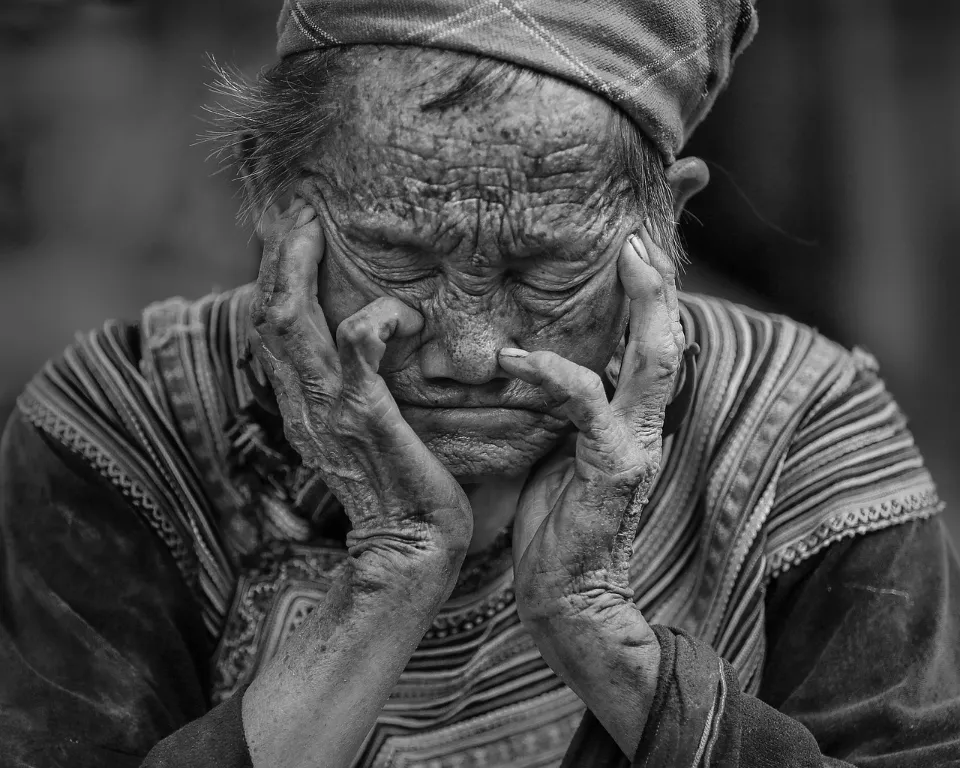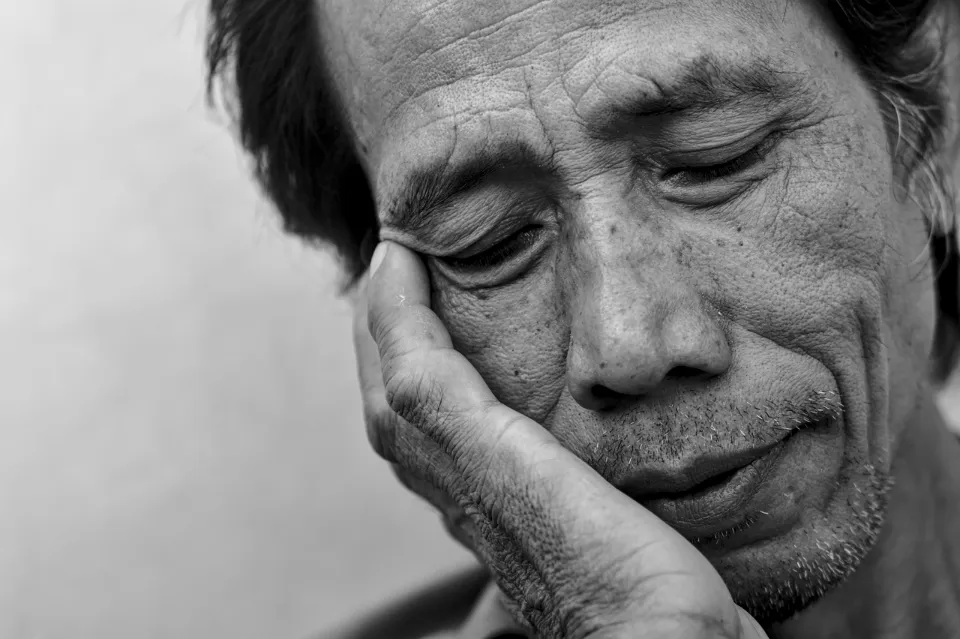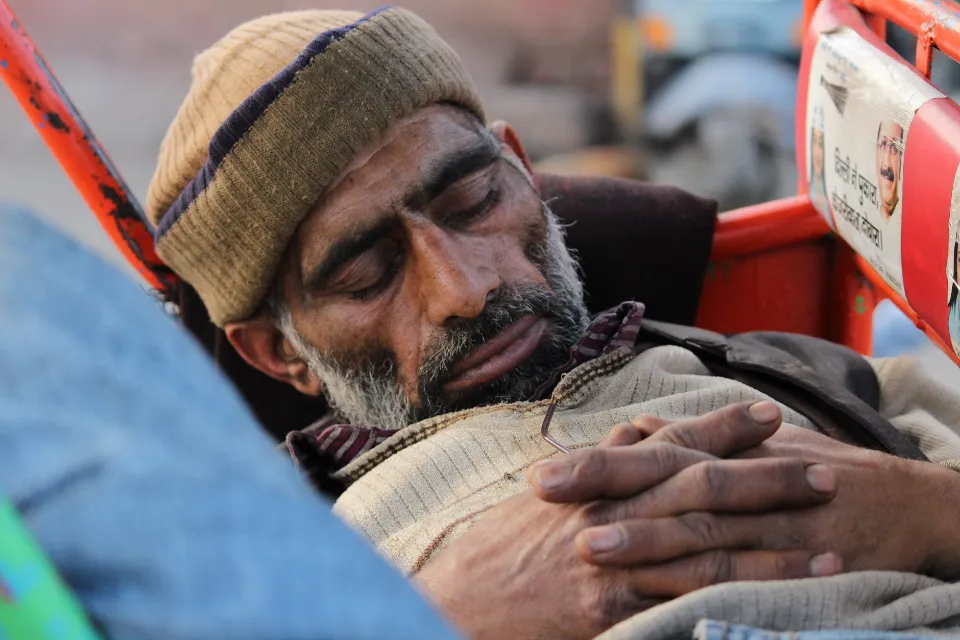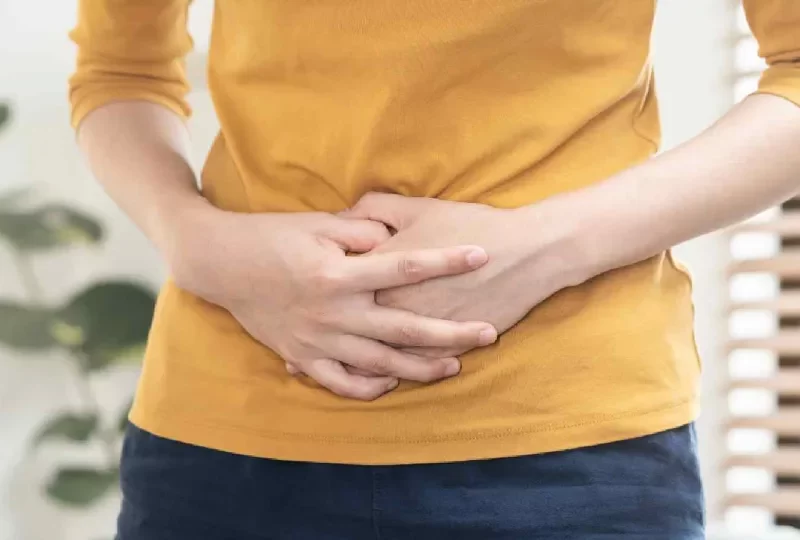Moaning in sleep, also known as catatonia, is a rare sleep disorder that causes you to moan loudly during sleep. You probably don’t even realize you’re moaning at night, but it happens almost every night when you exhale. If you make a loud noise, it might wake up your bed partner or someone else nearby.
It is unknown how many people suffer from catatonia. According to studies, 0.17 to 0.4% of people with sleep issues exhibit unusual confusion. Due to the rarity of nighttime moaning, experts are still looking into the causes of sleep disorders and the most effective ways to treat them.
You will learn what nighttime moaning is in this article, why elderly people moan while they sleep, and how to treat it. You’ll benefit from it, I’m confident of it.
Read more: Why Do Elderly Sleep So Much: How To Affect And 5 Tips – Elder VIP
What is Nighttime Moaning?
Sleep-related breathing disorders include nighttime moaning. Sleep apnea and snoring are two additional common breathing problems associated with sleep. Because their sleep study patterns are so similar, central sleep apnea and catathrenia can be mistaken for one another. Catathrenia differs from regular snoring in that it originates from the larynx rather than the throat.
Typically, the catatonic moaning or moaning sounds last for two to 49 seconds. These moans primarily occur during REM sleep Trusted Source National Biomedical and genomic information is made available by the National Center for Biotechnology Information, which advances science and healthcare. View Source, but can also happen during non-REM sleep.
Previously, catatonia was classified by the International Classification of Sleep Disorders as parasomnia. Unusual or unwelcome behaviors are considered parasomnias. The Merck Manual, which was first published in 1899 as a small reference book for doctors and pharmacists, has expanded in size and scope to become one of the most popular and comprehensive medical resources for both professionals and patients. That happens while falling asleep, during sleep, or as you wake up. Catatonia doesn’t involve talking or babbling while you sleep, in contrast to parasomnia.

Experts have noted that catatonia shares traits with both parasomnias and breathing disorders associated with sleep. Regardless of how it is classified, catatonia is a disorder that is different from other parasomnias and breathing disorders that are related to sleep.
Why Do Old People Moan in Their Sleep?
Since catathrenia is so uncommon, no one knows its exact cause. The vocal cords’ home, the larynx, is where the moaning is thought to have its beginnings.
“Whenever you make a sound, it’s because of a vibration of the structures,” Soroush Zaghi, MD, a sleep surgeon at The Breathe Institute, told Health. “In contrast to catathrenia, which causes the vocal cords to vibrate instead of the back of the throat, the voice box produces snoring noises.”
This nocturnal (or nighttime) moaning may be caused by several different suspects. According to the Sleep Foundation, the following things may cause old people to moan in their sleep:
Genetics
Dysfunctional Neurons That Control Breathing
Small Jaw Size
Small Upper Airways
Something Called Inspiratory Flow Disorder
But it’s still a mystery as to why elderly people moan in the first place. There simply aren’t enough elderly people who groan while they sleep to provide researchers with sufficient data to establish the causes. And perhaps there are several contributing factors. Catathrenia, in the opinion of Dr. Zaghi, may refer to a number of distinct disorders with various etiologies.
Symptoms of Nighttime Moaning
The main sign of nighttime moaning is an almost nightly moaning or groaning sound made while elderly people are sleeping but are unaware of it. The sound is frequently monotonous and can be heard as sullen, melancholy, or even sexual. The National Center for Biotechnology Information, a division of the National Library of Medicine, promotes science and health by making biomedical and genomic data accessible. When the elderly exhale, they begin to moan, which stops when they inhale.
Moaning at night can happen to both adults and kids. The sound usually wakes up family members or bed partners, which motivates elderly people who groan at night to seek medical attention.
Because so few cases have been studied, specialists know little about the disorder’s other symptoms. In some case studies, combinations of the following symptoms have accompanied nighttime moaning:
- Snoring
- Dry mouth
- Mouth breathing
- Sleep disruption
- Fatigue
- Morning grogginess
- Morning headache
- Trouble concentrating
Treatments for Nighttime Moaning
Some old people benefit from treatments for nighttime moaning. The majority of the time, the root cause is the focus of the condition’s treatments. Nevertheless, choosing a successful treatment can be challenging because it is unclear what triggers or why old people moan in their sleep.

Continuous Positive Airway Pressure (CPAP) Therapy
There’s a possible relationship between nighttime moaning and sleep apnea, a condition where you stop breathing for brief periods while sleeping.
For that reason, continuous positive airway pressure (CPAP) can help some people.6 As you sleep, you wear a mask hooked up to a machine that delivers pressurized air to keep your airways open.
But not all elderly people who groan at night respond to this therapy.
Tonsillectomy and Adenotonsillectomy
Another method of treating nighttime groaning is to have your tonsils removed (a tonsillectomy), or to have your tonsils and adenoids removed (an adenotonsillectomy). Numerous case studies have demonstrated that these operations lessen symptoms of nighttime groaning.
Oral Appliances
Elderly people who snore or have obstructive sleep apnea may benefit from oral appliances that are also used to treat snoring and snoring. These items are only worn while you sleep. American Academy of Dental Sleep Medicine (AADSM)AADSM is the leading national organization representing dentists who treat sleep-disordered breathing, which includes obstructive sleep apnea (OSA) and snoring and fit like a retainer. Oral appliances are used to keep the upper airway open.
Final Thoughts
Moaning and groaning while you sleep is not unhealthy, but it could be a nuisance. Age-related enuresis does not cause a drop in oxygen levels during sleep, unlike the more common sleep apnea condition. Your organs could be harmed if you have low oxygen levels while you sleep. It is important to have a sleep specialist examine elderly family members if you notice that they occasionally moan while they sleep. Knowing that your senior’s snoring does not cause concern allows you to sleep soundly.



